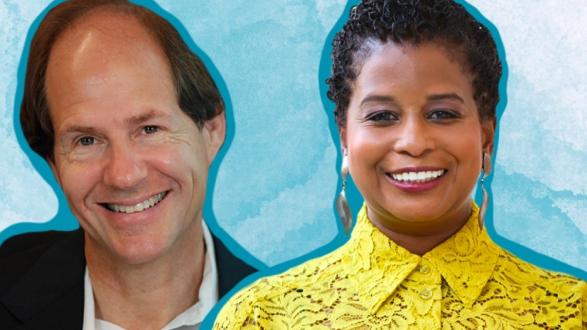Streaming platform via Zocalo Public Square
To merely open a bank account or secure a driver’s license, people around the world face one common barrier: paperwork. Americans, in fact, spend 11.4 billion hours a year on federal paperwork alone. Harvard legal scholar Cass R. Sunstein, former administrator of the White House Office of Information and Regulatory Affairs, has a name for this kind of drudgery: sludge. Sludge, he argues, doesn’t just cost time, money, and dignity—it does an immense amount of damage to society’s most vulnerable people.
Bureaucratic red tape—“volokita” as it’s known in Russian—hinders everything from gaining access to food to securing healthcare. How could less paperwork help the least wealthy, least healthy, and least educated improve their station in life? Have any countries or institutions figured out what it would take to make this happen? Sunstein, author most recently of Sludge: What Stops Us from Getting Things Done and What to Do about It, visits Zócalo to talk about eliminating the piles of paperwork obscuring our path to a more equal world.
This event is in partnership with Zócalo Public Square. Members please register on Zócalo's site by following this link.
Featuring:
Cass R. Sunstein, Harvard Legal Scholar and Former Administrator of the White House Office of Information and Regulatory Affairs
Cass R. Sunstein is currently the Robert Walmsley University Professor at Harvard. He is the founder and director of the Program on Behavioral Economics and Public Policy at Harvard Law School. In 2018, he received the Holberg Prize from the government of Norway, sometimes described as the equivalent of the Nobel Prize for law and the humanities. In 2020, the World Health Organization appointed him as Chair of its technical advisory group on Behavioural Insights and Sciences for Health.
Moderator:
Nikita Stewart, Assistant Metro Editor, New York Times
In 2018, the Newswomen's Club of New York recognized Stewart for her coverage of homelessness, mental health and poverty. She has been a finalist for the Livingston Award and an Investigative Reporters and Editors Award. In Troop 6000: The Girl Scout Troop That Began in a Shelter and Inspired the World, Stewart chronicles the triumphs and challenges of the first Girl Scout troop designed for girls in the New York City shelter system. Stewart joined The New York Times in 2014 after working at The Washington Post.




